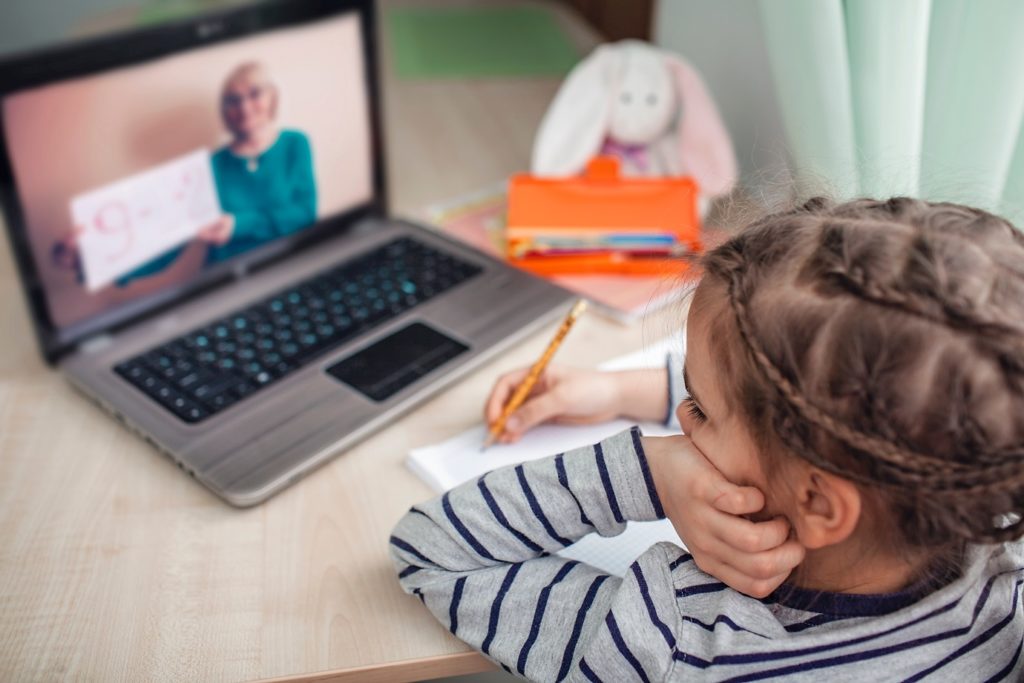Across Australia earlier this year, COVID-19 became the catalyst for remote online learning. It has been a huge social and learning experiment. Almost every student enrolled in school was signed up to a digital learning platform – privately provided and with often opaque commercial arrangements with state and territory governments. Remote learning during the pandemic intensified our children’s reliance on technology, potentially amplifying gaming and social media addiction and dependence.
We must do more to offer our children safe digital passage through the pandemic and beyond. It’s time governments look at the success or otherwise of the online learning experiment to inform the days and months ahead, especially as the pandemic continues to escalate in Victoria and could flare up in other states again. Those evaluations should be cross examined by a federal agency so lessons are shared and made public.
Until we have robust public data about how students have managed, we only have anecdotes to steer the course. While acknowledging the hard work teachers have had to do during a fluid period, the pandemic is like being inflight without a flightpath or flying with a wing missing, but we still ought to be making regular and deep assessments about the wellbeing and health of passengers.
We are social creatures, we learn socially and through observation, in situ. Lockdowns have disembodied education with lessons on screens and students as avatars. Many teachers will admit that it’s been challenging reaching students online; establishing rapport and making meaning, especially with students who lack intrinsic or extrinsic motivation.
For children in the years from kindergarten to Year 3, the best engagement is through classroom learning. Schools just can’t expect a seven year old to be self-guided in their learning and make informed choices about how to use their time. When you take a child and her peers into virtual space, and the teacher is not physically present, students lose a lot of prompts and inspiration. Some children inevitably slip behind especially if they lack resources and supportive supervision at home.
The internet will remain central to children’s lives; for gathering information, for formal and informal learning, for sharing creative content, for social connections and for leisure and screen-based recreation. But there are opportunity costs. For all the freedoms we’re told the internet and online learning offers, certainly enhancing learning for some, the digital age has institutionalised kids by exposing them from very young to commercial, manipulative and addictive forces.
Children have far less impulse control to know how to self regulate online. Profit-making Big Tech knows this, as children are not likely to know that when they use social media (even something as seemingly innocuous as Google Hangouts), that the platforms are using them.
When teachers require them to do more and more school work at school and at home on a screen, the boundaries parents and carers have tried to establish become harder to monitor and keep.
We owe our kids a thorough survey of the remote learning model, one that engages families and schools, to balance the risks and benefits of the approach so that students are in better control of the technology, rather than the technology is in charge of them. A comprehensive review of online learning ought to look at the genuine harms of hyper-connection and advise schools and families about how to ensure children have rich, varied and challenging opportunities in both the cyber and physical worlds through which to learn and grow.
Toni Hassan is the author of Families in the Digital Age: Every Parent’s Guide (Hybrid, 2019). She will facilitate a free webinar ‘Left to Their Own Devices’: How the Lockdown is Affecting our Kids’ at 1 – 2PM, Tuesday, August 4.
Join her and Professor Lelia Green of Edith Cowan University, Georgie Dent from the Parenthood and Peter Lewis from the Centre of Responsible Technology for this important discussion. Register to attend this free.

